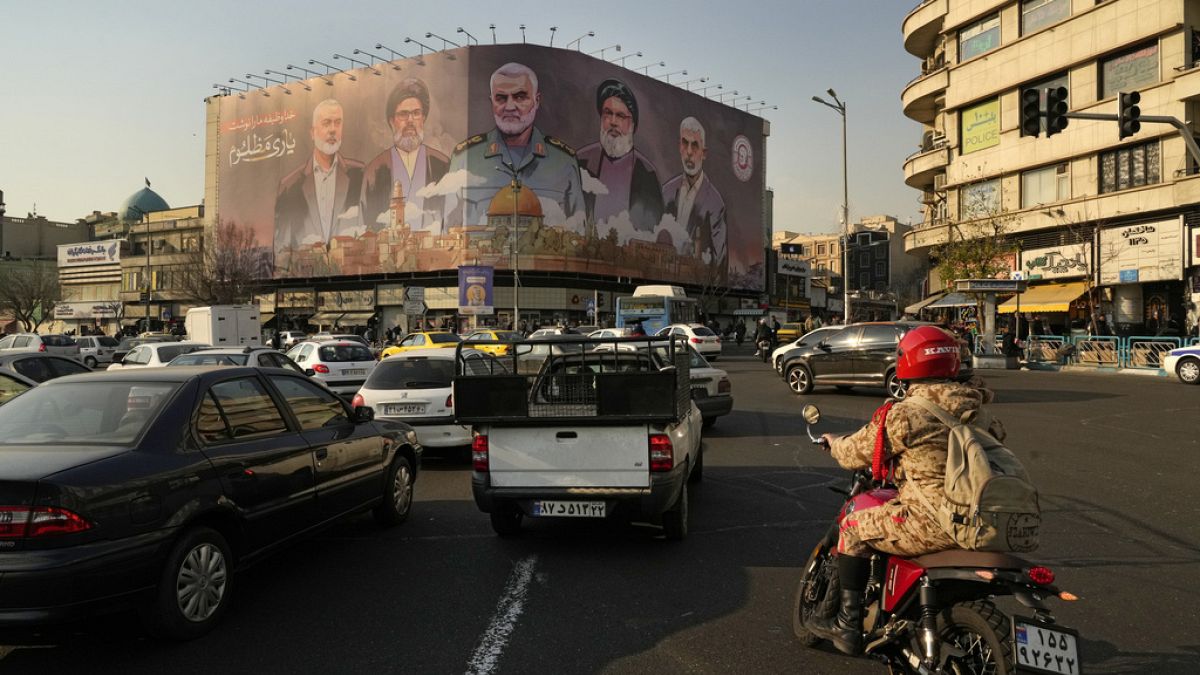

In a turn of events that underscores the complex nature of international relations, a European citizen has been detained in Iran, suspected of espionage in areas deemed sensitive by Iranian authorities. This development was reported by Iran’s Tasnim news agency, casting a shadow over the diplomatic interactions between Europe and Iran. The specifics of the allegations remain under wraps, but the incident has heightened attention on international espionage and the delicate balance of cross-border relations.
In other parts of the globe, tensions have been noted around the European Union’s ambitious €150 billion defense initiative, known as the SAFE plan. A report from the German Bundestag has raised concerns over the legality and economic viability of this flagship plan, pointing to potential violations of EU treaties. Such scrutiny brings to light the ongoing challenges that large-scale defense initiatives face in aligning with legislative frameworks and economic expectations.
Meanwhile, in an unmistakable sign of evolving geopolitical challenges, the United States appears to be strategically positioning B-2 bombers in Guam. This move comes amid ongoing deliberations over potential US involvement in Israel’s military strategies concerning Iran. The deployment highlights the complexity and interconnectedness of global military strategies and the cautious calibration of power postures by major global players.
As the world grapples with these high-stakes political maneuvers, a heartening note was struck in a different context, with Pakistan set to nominate US President Donald Trump for the Nobel Peace Prize. This nomination stems from Trump’s role in mediating a resolution in the recent India-Pakistan dispute. The gesture underlines the broader themes of conflict resolution and the hope for peaceful diplomacy that resonate beyond immediate political contexts.
On a different note, concerns about environmental sustainability clash with developmental ambitions in a quiet Portuguese village, Covas do Barroso, where residents are opposing plans for four expansive lithium mines. These mines are part of the EU’s push for an energy transition but represent what locals describe as a “sacrifice zone.” The situation paints a poignant picture of the tensions between global energy innovations and local environmental and cultural legacies, emphasizing the need for balanced, inclusive development strategies.
Turning to political dynamics within Europe, the Rassemblement National in France finds itself embroiled in internal competition as tensions simmer between party leader Marine Le Pen and Jordan Bardella. The evolving dynamic speaks to the intricate nature of party politics and the shifting alliances in political landscapes that continuously redefine themselves in response to public perception and electoral ambitions.
In the cultural sphere, controversy brews over Kneecap’s upcoming performance at the Glastonbury Festival. UK Prime Minister Keir Starmer has voiced concerns over the appropriateness of the band’s presence following a band member’s controversial expressions of support for Hezbollah. This incident highlights the ongoing debates around free expression, cultural representation, and the responsibilities of public figures and events in fostering inclusive environments.
The theme of safety and infrastructure resilience emerged starkly in London when travelers, affected by halted train services amidst the year’s highest temperatures, were compelled to walk along railway tracks. This occurrence underscores the critical need for robust infrastructure systems capable of withstanding climatic extremes and ensuring public safety.
Recognizing the role of influential individuals in shaping public agendas, the case of former British Army head Lord Dannatt has once again drawn attention. Accused of lobbying government ministers for financial support of a commercial deal, this revelation poses questions about the intersection of public service and corporate interests.
In Cyprus, the arrest of a British man accused of espionage and terrorism, allegedly linked to Iran’s Revolutionary Guards, has added to the tapestry of international security concerns. The arrest serves as a reminder of the persistent and complex challenges posed by global security threats and the need for vigilant, cooperative international efforts to address them.
Meanwhile, in the United States, societal and legal frameworks are tested as a serial rapist, Zhenhao Zou, faces a second trial following additional allegations. The judicial processes reflect broader societal commitments to justice and the protection of vulnerable communities from predation and violence.
In the political arena, discussions surrounding preparation and security often reveal underlying societal tensions. Vance Boelter, accused in Minnesota of actions termed preparatory for conflict, encapsulates the ongoing challenges faced by law enforcement and the judiciary in balancing individual rights with community safety.
Amidst these varied narratives, the interplay of justice, diplomacy, security, and societal development continues to shape news across the globe. Each story is a thread in the vast tapestry of human experience, highlighting the continuous interplay between individual actions and the broader socio-political landscape that we collectively inhabit.
Source: {link}
